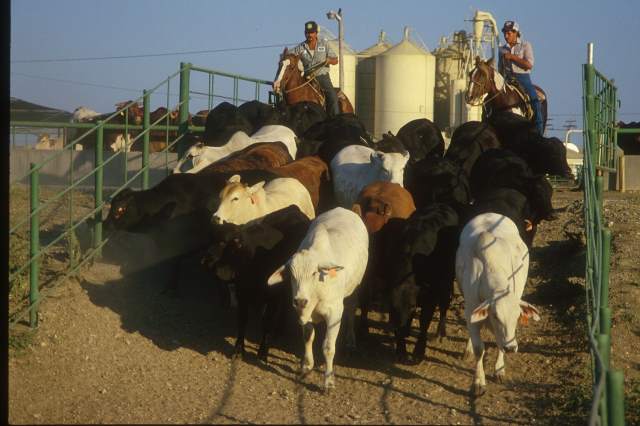December 9, 2015

Perhaps it’s a credit to democracy that ludicrous notions posited by a minority as being good for business—ideas that common sense says will add cost, alienate customers and offer no positive return—can actually become law.
Mandatory country-of-origin labeling (COOL) is the poster child for such paradoxical failure.
By now, you’ve likely heard that the World Trade Organization (WTO) authorized Canada and Mexico to assess more than $1 billion annually in retaliatory tariffs on U.S. products. That’s in response to complaints filed by Canada and Mexico that COOL discriminates against imported livestock and is in violation of U.S. trade agreements.
You also likely know this dispute has dragged on for years, from proposed mandatory COOL rules in 2003, to amendments in the 2002 and 2008 Farm Bills to the final rules in 2009. WTO first ruled against COOL in 2011. Since then, the U.S. fairly well thumbed its nose at the WTO and its NAFTA trading partners, offering up point-missing amendments that were doomed before the first pen stroke.
Now, with final appeals exhausted, barring a Senate vote to repeal the law—the House voted in favor of repealing it last summer—Canada and Mexico are gearing up to impose retaliatory tariffs.
“Mandatory COOL is one of the most costly and cumbersome rules ever imposed on the agricultural sector and the WTO announcement sets in motion Canada’s and Mexico’s ability to impose tariffs, a move they will likely complete before Christmas,” says Barry Carpenter, president and CEO of the North American Meat Institute (NAMI). “Soon, a host of industries, ranging from cherry producers to maple syrup processors to wooden furniture and mattress makers, could pay the penalties for this debacle created by some anti-trade organizations who fought for the law.”
Keep in mind that Canada and Mexico are two of the top three export destinations for U.S. beef, accounting for over $2 billion in sales and nearly one-third of total U.S. beef exports.
“The Government of Canada has made every effort to convince the United States to comply with its international trade obligations,” said the Honourable Chrystia Freeland, minister of international trade, and the Honourable Lawrence MacAulay, minister of agriculture and agri-food, following the WTO announcement. “If the U.S. Senate does not take immediate action to repeal COOL for beef and pork, Canada will quickly take steps to retaliate.”
How tariffs could affect producers
Canada and Mexico are currently developing their lists of products that will be included in the retaliation—NCBA expects it next week. But, Colin Woodall, NCBA vice president of government affairs, emphasizes that both Canada and Mexico said since the outset that beef would be among the products.
If beef is on the list, in effect, the tariffs would make U.S. beef more expensive to consumers in those countries—as much as twice as expensive, according to estimates.
“We expect the tariffs (that) Mexico and Canada would put on our products would be at a level that would basically stop the trade of beef between our countries,” Woodall said in Beltway Beef audio program.
Woodall added that uncertainty comes with the fact that Canada and Mexico can utilize what’s known as carrousel retaliation, by which products can be added and removed throughout the year.
“Canada and Mexico have made it very clear that the only way they will drop the WTO case and not retaliate is if the U.S. completely repeals the COOL program,” Woodall says.
A sliver of hope remains
“Retaliation can still be prevented if the Senate acts to repeal COOL, but they have to act this week,” Woodall explained. “Time is critical. Contact your members of the U.S. Senate and tell them to support the repeal of COOL.”
Although the window for taking action is narrower than a flea’s eyelash, Woodall remains optimistic.
“The good news is that I think it has finally gotten enough members of Congress to step up and realize that there is nothing else that can be done to defend COOL, that it is truly a failed experiment, and in order to preserve the relationship between the three countries, we have to get rid of it,” Woodall said.
“The COOL rule has been a failure on all accounts; it has cost our livestock industry billions in implementation, it has violated our trade agreements with two of our largest export markets, it has resulted in the closure of several U.S. feedlots and packing facilities and it has had no effect on the price or demand for U.S. beef,” says Philip Ellis, president of the National Cattlemen’s Beef Association. “The House voted in an overwhelming bi-partisan vote of 300-131 to repeal COOL and it is time for the Senate to do the same before retaliation damages the entire U.S. economy and irreparably harms our strongest trading relationships.”
“It’s disappointing this matter had to come to this point because we’ve long said that it would invite retaliation from Canada and Mexico, our two best trading partners,” Carpenter explains. “As the Canadian and Mexican governments prepare to impose these tariffs we are reminded of the sage prophet, Pogo, who said, ‘We have met the enemy and he is us.’”
You might also like:
Could we soon be taxed for eating meat?
13 new utility tractors for the ranch
7 ranching operations who lead in stewardship, sustainability
5 tips for managing feed intake in calves
Want a more efficient cowherd? Start with early-born heifers
2016 weather outlook: Is drought in the forecast?
You May Also Like



